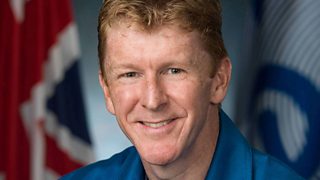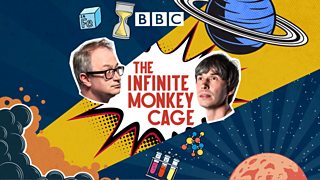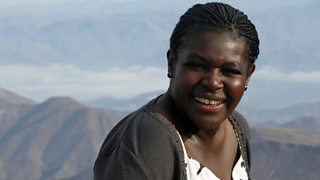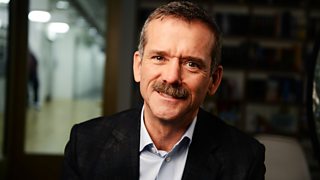10 things we learned from Tim Peake's Desert Island Discs
Tim Peake is an Army Air Corps officer and European Space Agency astronaut. In his six months in the International Space Station he became the first astronaut to run along with the London Marathon and he also presented the singer Adele with a Brit Award. He was an army pilot for nearly 20 years serving across the world. It was while looking for a new challenge that he applied for the post of astronaut: 8,000 hopefuls responded to an advertisement and six were selected. Here are 10 things we learned from Tim’s Desert Island Discs...
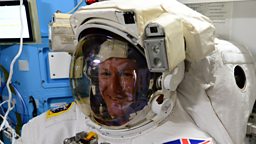
1. One of his musical choices takes him back to a very special teenage moment
“When I was 18 years old,” says Tim, “I gained a flying scholarship that was given to me by the Royal Air Force. So I went down to Compton Abbas Airfield [in Dorset] and spent 30 hours flying Cessna aircraft. I did my first solo just after a few hours. I came back after that sortie and I was so elated, on such a high - taking the aircraft up, 18 years-old by yourself - and I landed and this was playing in the bar. I sat down with a cold beer with my mates and, and listened to this. So this just takes me back.”
Being a test pilot. It's all about risk management really. You try and analyse the risk and you try and mitigate it as much as possible.
The track is Waterloo Sunset by The Kinks.
2. Astronaut training is good preparation for lockdown
“We're so fortunate as astronauts… we have so much training and preparation to go and live in isolation,” says Tim. “We stick to a structure and routine on a space station to help us to make sure everybody knows what to do, when to do it and manage expectations to avoid conflict. We spend a week living in a cave, 12 days underwater... to help us deal with these circumstances. So my thoughts have been with everybody trying to deal with difficult circumstances and also that separation from loved ones where you can't go and just have a face to face conversation. And of course, everybody's been launched into a year of various lockdowns with no preparation, no training, no guidance or advice as to what you can do to make your life easier.”
3. Tim’s first dream job was being a test pilot
After a stint with the US Army flying Apache helicopters, Tim came back to the UK to train British aircrew before eventually being selected for the Empire Test Pilots’ School which only takes one candidate from the army each year.
“It was my dream job.” says Tim. “Yes, being a test pilot is quite risky at times. When I was flying Apaches with the Americans, I was really starting to develop that passion for becoming a test pilot, because we were introducing new things on the aircraft, it was cutting edge technology. And I was loving that... So that really sowed the seeds for wanting to to go down this path. Being a test pilot. It's all about risk management really. You try and analyse the risk and you try and mitigate it as much as possible. But at the end of the day, somebody has to take aircraft up and find out what they can do.”
4. Personality plays a big part in astronaut selection
“You've got to be somebody who's calm under pressure, somebody who gets on very well with other people, you know, good communication skills, and teamwork. All of that is tested during the year long selection process.” But what does he think clinched the deal for him? His love of flight from an early age, making model airplanes, or the 20 years experience as an army pilot? After his interview he asked the French astronaut Jean-François Clervoy why he’d picked him? “[Jean-François] said, 'Well, I always just asked myself a question. Would I like to spend six months in space with this person? If the answer is yes, then you get the tick in the box.'”
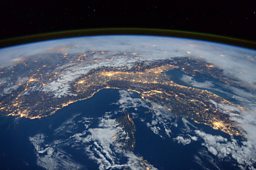
5. While brushing his teeth he had the best view in the world (and of the world)
During his time on the International Space Station he developed a daily ritual: “I just float to the window and brush my teeth and look at the earth passing by. And it doesn't matter if you're passing over somewhere you've seen before. Every time you look out, there's something new and something different to see - different lighting conditions, different weather. Earth is just such a beautiful planet to look at from space, so it was never boring to look down.”
6. Earth’s emptier places caught his eye
“I fell in love with Patagonia. It's just so beautiful. The ice fields you know in South America are just wonderful and, and also deserts are beautiful. The Sahara, Australia as a continent, they're very orange. And so they're very colourful, seen from space.”
7. His first musical choice takes him back to the moment before lift-off
“We're allowed to choose three tracks before we launch to space,” explains Tim. “They're actually played into the Soyuz capsule when you're sat there in the five minutes before launch. It's designed to just take your mind off what's about to happen so I thought what could be better than listening to [Queen’s] Don't Stop Me Now just before you launch into space and it still makes the hair stand up on the back of my neck every time I hear it.”
8. Rebecca, Tim’s wife, also has a military background
“Rebecca was with The Royal Logistical Corps so I think that does help,” says Tim thinking of the long periods away from the family and the risks involved in his work. “She had been through the same training I had been through at Sandhurst, and she met me as a pilot. So she knew and understood the risks that I was taking. And that has definitely helped as I've gone through my test pilot career, my astronaut career.”
9. The first smell he remembers after returning from space was burning grass
“First, you're relieved because the parachutes have opened and it's all gone well,” says Tim, “but you're feeling dreadful. There's a lot of vertigo, dizziness, and you're being dragged out of this capsule. People talk about those wonderful first aromas of earth after six months, [but] the reality is the hatch opens and the first aroma is scorched burning grass, because your capsule has set fire to the prairie, and then you get this big, hairy Russian coming in to drag you out. It's only really about 10 minutes after landing, when you're sat in the chair and your head stops spinning slightly that you can really embrace the fresh air and the lovely smells, and being reunited with Planet Earth again.”
10. Tim offers good advice about chasing your dreams
“The important thing - and it's great to have dreams, and it's great to be able to set your sights on them - is to never give up, to constantly work towards it, but also to enjoy the journey that takes you there,” says Tim. “That's probably the most important advice I would give because then it doesn't matter. Even if statistically it's very unlikely you're going to make it, if you're enjoying the journey there, then you will have a fantastic time and other opportunities might come up. If you do end up achieving your dream, then absolutely fantastic. If you don't end up achieving it, you'll end up doing something equally as good.”

